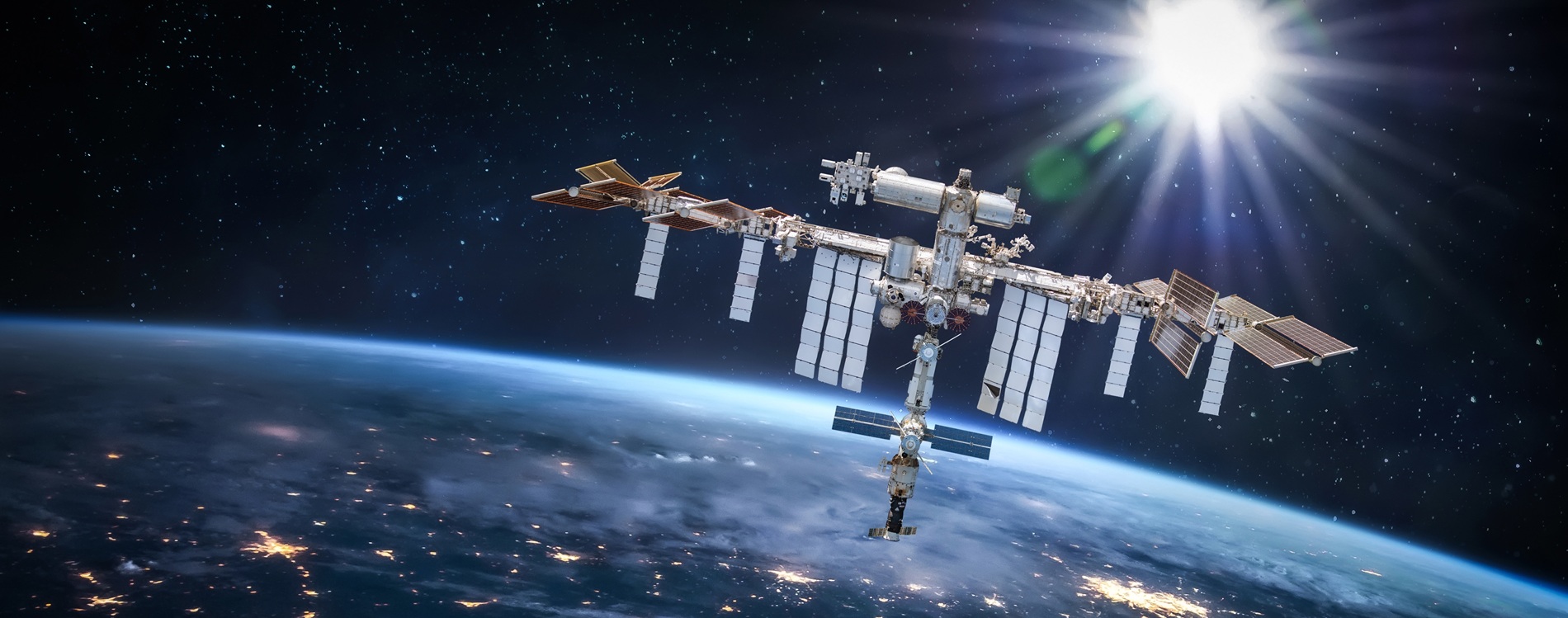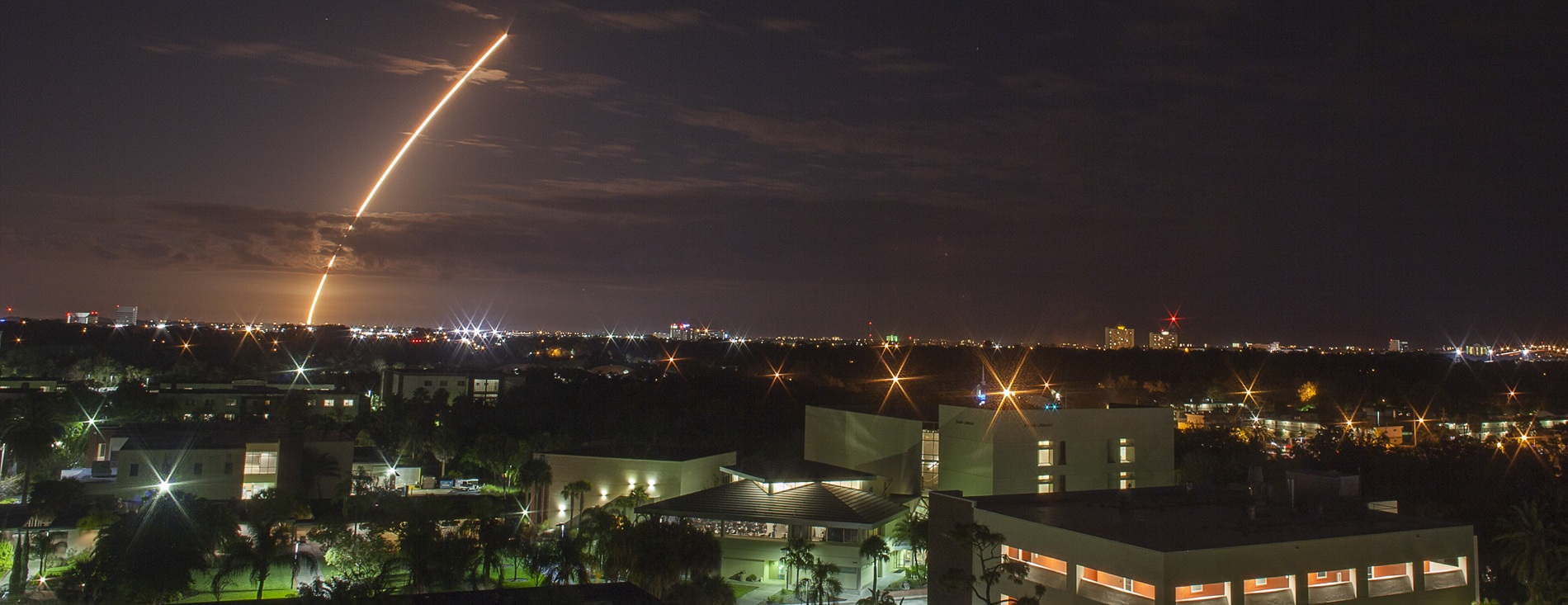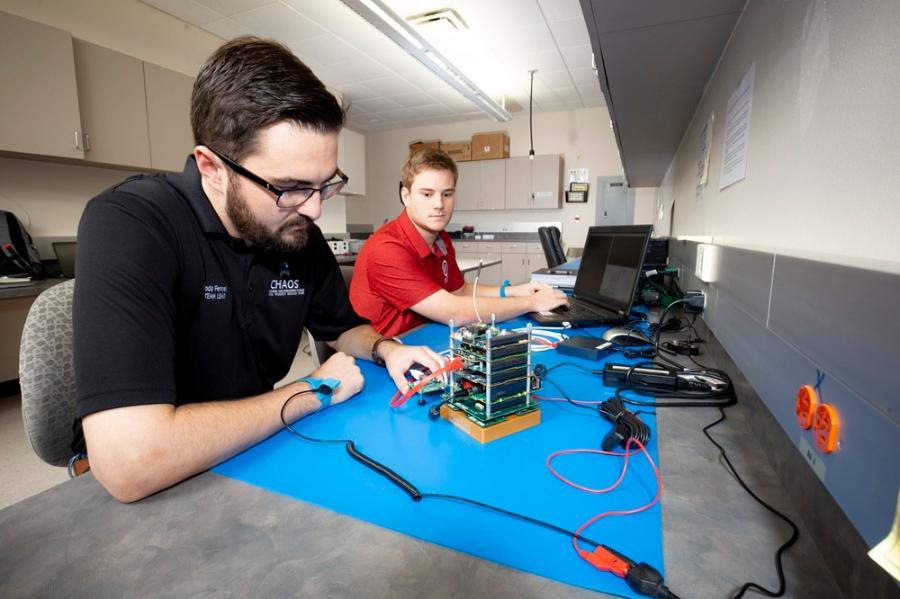Space systems is a highly interdisciplinary field, and students in this degree program collaborate with colleagues across various aerospace disciplines. Florida Tech professors bring extensive industry experience as working professionals, alongside many students whose combined expertise provides real-world insight into the industry.

Space Systems, M.S.
What is Space Systems?
Get a Master's in Space Systems
The Space Systems M.S.
Gain specialized expertise to excel in technical and managerial roles in the space sector.
The M.S. in space systems prepares graduates to design, operate and analyze advanced space systems, integrate cutting-edge technologies and drive cost efficiency in private, government or military space programs.
Whether your focus is to plan, design, build, integrate, test launch, operate or manage space systems, subsystems, launch vehicles, spacecraft, payloads or ground systems, the space systems master’s degree provides excellent preparation for advanced leadership positions.
College Factual
The Center for World University Rankings
G.I. Jobs Magazine

Why Choose Florida Tech for Space Systems?
Founded to serve the engineers and scientists of the early U.S. space program, Florida Tech has a rich history and strong ties with the space industry. Earning your master’s in space systems here means you'll gain expertise in propulsion and power systems, astrodynamics, communications and data systems, spacecraft environment and spacecraft dynamics and control while joining a proud legacy of advancing space exploration.
Students in the space systems master’s program have a variety of backgrounds and collaborate on research and projects, often earning publication in respected industry journals and magazines. Assistantships with NASA, SpaceX and other space agencies and companies provide hands-on experience in space system design and operations, enriching the educational journey.
The space systems degree program includes an engaging capstone course in which student teams compete to create the most compelling proposal for a specific mission. Acting as the source selection official, the instructor issues a request for proposals. Potential mission topics include astronomy, communications, human space missions, planetary and interplanetary robotic exploration and remote sensing.
As a space systems student, you'll have the option to complete a thesis for an in-depth research experience that allows you to explore a specific topic and contribute new insights to space systems. This process helps you develop expertise in a specialized area, giving you an edge in roles that prioritize deep knowledge and preparing you for potential doctoral studies. Students who wish to complete a thesis may substitute thesis credits for six credits of electives, with permission of the director of space systems graduate studies.
Admission to the space systems master’s program requires a bachelor’s degree in a recognized field of engineering or physical science from an accredited curriculum. Coursework must have included mathematics through differential equations and at least one year of calculus-based physics.
If your academic record is strong but you’re missing a few specific courses, the academic department may require additional prerequisites to ensure you’re fully ready to succeed in the program.
Please see our graduate admission requirements for more information or start your application now. GRE is not required.
Careers in Space Systems
A master's in space systems opens the door to a range of career paths, including roles in space systems engineering, operations and research.
Florida Tech graduates are employed by leading private and government organizations, such as L3Harris Technologies Inc., Boeing, the U.S. military, the European Space Agency, the Federal Aviation Administration and NASA. Working throughout the space sector, our program alumni even include astronauts.
Florida Tech Career Services assists students, alumni and employers in their search for careers and employee candidates. We help students develop career plans and job-search skills. Explore our Career Toolbox to learn more about our services and access additional resources.
The Occupational Outlook Handbook, published by the United States Department of Labor, Bureau of Labor Statistics (BLS), provides information about specific jobs, including median annual pay, working conditions and job outlook, among other things. Check the handbook for information on the outlook for space systems careers.
Advanced Degree Options
The master’s in space systems is geared toward careers in the space industry, with students typically applying their expertise for career advancement. Those interested in advanced graduate study may be interested in the doctorate in systems engineering.
Explore the Space Systems, M.S., Curriculum
The Space Systems, M.S., Curriculum
The 33-credit space systems master's degree curriculum provides a comprehensive foundation in the design, operation and analysis of advanced space systems.
You'll explore topics such as spacecraft configuration, systems engineering, propulsion, power systems, communications and astrodynamics and delve into cutting-edge technologies such as electric propulsion, nuclear-powered systems, space tether applications and advanced energy storage.
The program emphasizes understanding the space environment and its impact on vehicle design and operations, as well as mastering spacecraft dynamics, guidance and control.
You’ll choose electives to customize the program to your interests and work in a team setting in your capstone experience to create a compelling proposal for a specific mission.
Courses include:
- Space Propulsion Systems
- Space Communications and Data Systems
- Space Systems Astrodynamics

Shape Your Future in Space Systems

In the space systems master’s degree program, you can choose from an exciting selection of electives to deepen your expertise in specialized areas of space exploration and technology.
These courses cover essential topics, such as advanced spacecraft structures and materials, with a focus on the challenges of creating lightweight, durable designs capable of maintaining structural integrity and reliability while withstanding the harsh space environment.
Explore remote sensing and mission operations, with courses on sensor systems, data processing and the complexities of spacecraft tracking, launch and deployment.
Other elective options allow you to investigate the economic opportunities and risks of commercial space ventures or delve into cutting-edge technologies such as spacecraft guidance, navigation and control, robotics, AI for remote operations and human factors.
These electives are designed to equip you with the skills and knowledge to address the most current and impactful developments in space systems.
Additionally, with department head approval, you may pursue individual study on special topics in space systems or complete a thesis, further tailoring your education to your interests and career goals.
Learn more about Space Systems at Florida Tech on the website.


 Give to Florida Tech
Give to Florida Tech